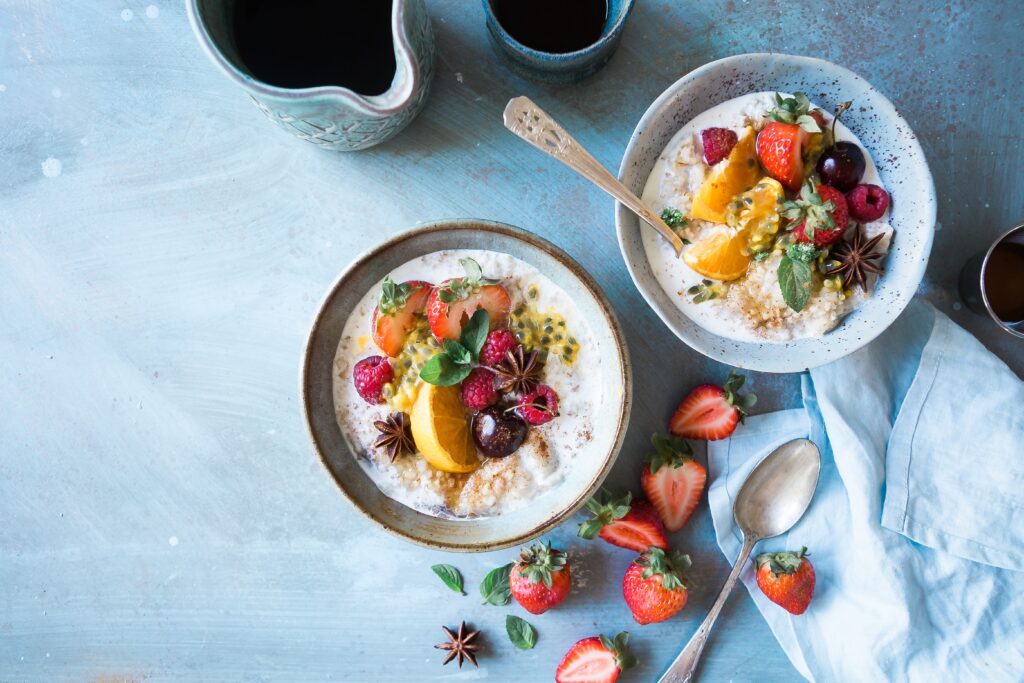Self-care has been defined as the process of establishing behaviours to ensure holistic well-being of oneself, to promote health, and to actively manage illness when it occurs. We engage in some form of self-care daily with food choices, exercise, sleep, and dental care. When we are in a period of alcohol misuse or stuck in the alcohol loop, self-care often takes a back burner which is why establishing a healthy self-care routine is very important when starting a journey of sobriety.
Taking Care of Yourself is Not Selfish
Taking care of oneself is often viewed as a selfish act, but there’s a huge difference between being selfish and practicing self-care. Learning to love and care for ourselves is one of the most challenging things we will ever do, but having compassion, patience, and love for ourselves is a cornerstone of getting and staying sober.
Regardless of where we are on our journey to living a sober life, self-care should be an essential part of our routine.

Ways we can practice self-care to support sobriety.
1. Exercise regularly
Taking part in physical activity not only produces endorphins and makes us feel happier, but it’s also a great way to maintain our physical fitness and weight. When we move more, we feel better! When we are drinking heavily, exercise is often something that gets overlooked. We feel tired, hungover, lethargic – it’s no wonder we find our activity levels drop. Starting with small goals, even 30 minutes of brisk walking will help us reap the benefits (whilst also soaking up some much-needed vitamin D!’. Other physical activities to try may include yoga, running, cycling, wild swimming and hiking. Try various activities and see what motivates you!
2. Set goals for yourself
Goal setting helps us to provide a sense of purpose in a challenging and transitional time of life. Consider setting goals that promote accountability and encourage personal growth. Examples of this may be to stick to and complete the Totiuss 30-day programme, to set boundaries with someone who is not being supportive of our sobriety, to meditate for 10 minutes every morning or to get out for a daily walk. Goals help us to develop a healthy routine and stay focused on our journey.
3. Prioritise Sleep
It is a well documented and researched fact that alcohol damages sleep. When we drink, the alcohol in our system means we spend less time in the important Rapid Eye Movement (REM) stage of sleep, with the end result being that we wake up feeling less refreshed. It is likely most of us will have been experiencing bad sleep for some time due to alcohol use and so it’s important to now prioritise quality sleep.
Getting enough sleep each night reduces stress and sickness, improves decision-making skills and focus, and makes it easier to communicate and get along with others. Most adults need seven to eight hours of sleep each night to be fully rested. Start creating an evening ritual to help you unwind and promote a good night sleep.

4. Connect with other people on the same journey as you
Addiction, depression, anxiety, and other mental health conditions all thrive in solitude. In order to prevent a relapse and combat symptoms of poor mental health, it’s important to find people and groups that will build us up in our recovery and provide us with the support needed to stay sober. Totiuss is a great place to start! There are now many sober meetups popping up all over the country which provide a great opportunity to make new friends and try something new!
5. Maintain a healthy diet
Eating a nutritious diet rich in fruits, vegetables, and other essential nutrients has many benefits for people in sobriety. Alcohol itself can interfere with the nutrition process by affecting digestion, storage, utilisation, and excretion of nutrients. Consequently, chronic heavy drinkers are hit with a double health whammy—they don’t consume enough nutrients, and the nutrients they do consume are not utilised well.
Alcohol use is one of the major causes of nutritional deficiency. The most common deficiencies are of the B vitamins (B1, B6, and folic acid). A lack of these nutrients causes anaemia and nervous system (neurologic) problems. For example, a disease called Wernicke-Korsakoff syndrome (“wet brain”) occurs when heavy alcohol use causes a lack of vitamin B1.
Alcohol use also damages two major organs involved in metabolism and nutrition: the liver and the pancreas. The liver removes toxins from harmful substances. The pancreas regulates blood sugar and the absorption of fat. Damage to these two organs results in an imbalance of fluids, calories, protein, and electrolytes.
Other complications include:
- Diabetes
- High blood pressure
- Permanent liver damage (or cirrhosis)
- Seizures
- Severe malnutrition
- Shortened life expectancy
Women who drink heavily are also at high risk of osteoporosis and may need to take calcium supplements.
Everyone will benefit from eating a healthy, balanced diet, but if we have been drinking heavily, eating a healthy diet has numerous benefits. The nutrients that proper nutrition provides supply our bodies with much needed energy. We will feel better mentally, physically, and emotionally. We can experience a positive lift in mood, often giving us a more positive outlook regarding our sober journey. This positive outlook will help reduce the risk of having a relapse.
Additional benefits of following a healthy nutritional plan include:
- Strengthening of the immune system
- Rebuilding damaged tissue and organs
- Regaining the proper functioning of various systems in the body, such as the gastrointestinal and nervous systems
Alcohol use will have caused a great amount of stress to our bodies and minds. Following proper nutritional guidelines helps both the brain and the body to heal from the damage of prolonged alcohol use.

6. Make time for friends and fun
Another great way to practice self-care on a sobriety journey is to make time for fun! Often when we’re drinking, our worlds become small, constantly repeating the same routines with our free time, hanging out with other drinkers. We need to use our new found sobriety to explore the lives we want to live! Try new things, explore places we have always wanted to explore and bring our friends along for the ride!
7. Journalling
Journaling is a process of keeping a regular record of experiences and feelings, especially as they play a big part in our sobriety journey. Being aware of our thoughts, feelings and triggers can be a helpful tool to aid our journey and provides great insight into our own personal circumstances and provides a great tool to air any uncomfortable thoughts.
A journal can be used to record our recovery-related struggles and accomplishments or to identify – and work through – difficult emotions. It also helps to hold us accountable for our decisions and actions and helps us invest in our own self-discovery.
Types of journaling
- A Diary – where you write down the events of the day and how you felt about them.
- An Evening Reflection Journal – where you reflect on the day’s events and ponder ways that you may have thought or behaved differently that would have involved better choices.
- A Gratitude Journal – where you write about things that you are grateful for and appreciative of.
- A Goal-Focused Journal – where you keep track of your goals and objectives and your progress toward these.
We provide you with a reflection journal as part of the Totiuss programme but any type of journal or a beautiful notebook will do. We love the Six Minute Diary for its simplicity and ease of use.
8. Be mindful
We hear a lot about mindfulness, but what does being mindful really mean and how does it relate to our sobriety journey? Mindfulness is the practice of being aware of physical and mental sensations. Staying in the present moment can be difficult, and even uncomfortable at times. Sticking with the thoughts and feelings we’re experiencing in the moment gives us a chance to get in touch with what’s really going on inside and allows us to explore emotions and thoughts that we used alcohol to avoid.
9. Meditate
We love meditation and have incorporated it as a daily practice in our Totiuss programme. Meditation can be a key tool to our success in sobriety. It can train the mind to improve, regulate emotions, overcome cravings and maintain focus. Meditation also assists in regulating feelings activated by stress, lowering blood pressure, improving sleep quality, and reducing cortisol levels. Try practicing for 10 minutes daily to feel the benefits.

